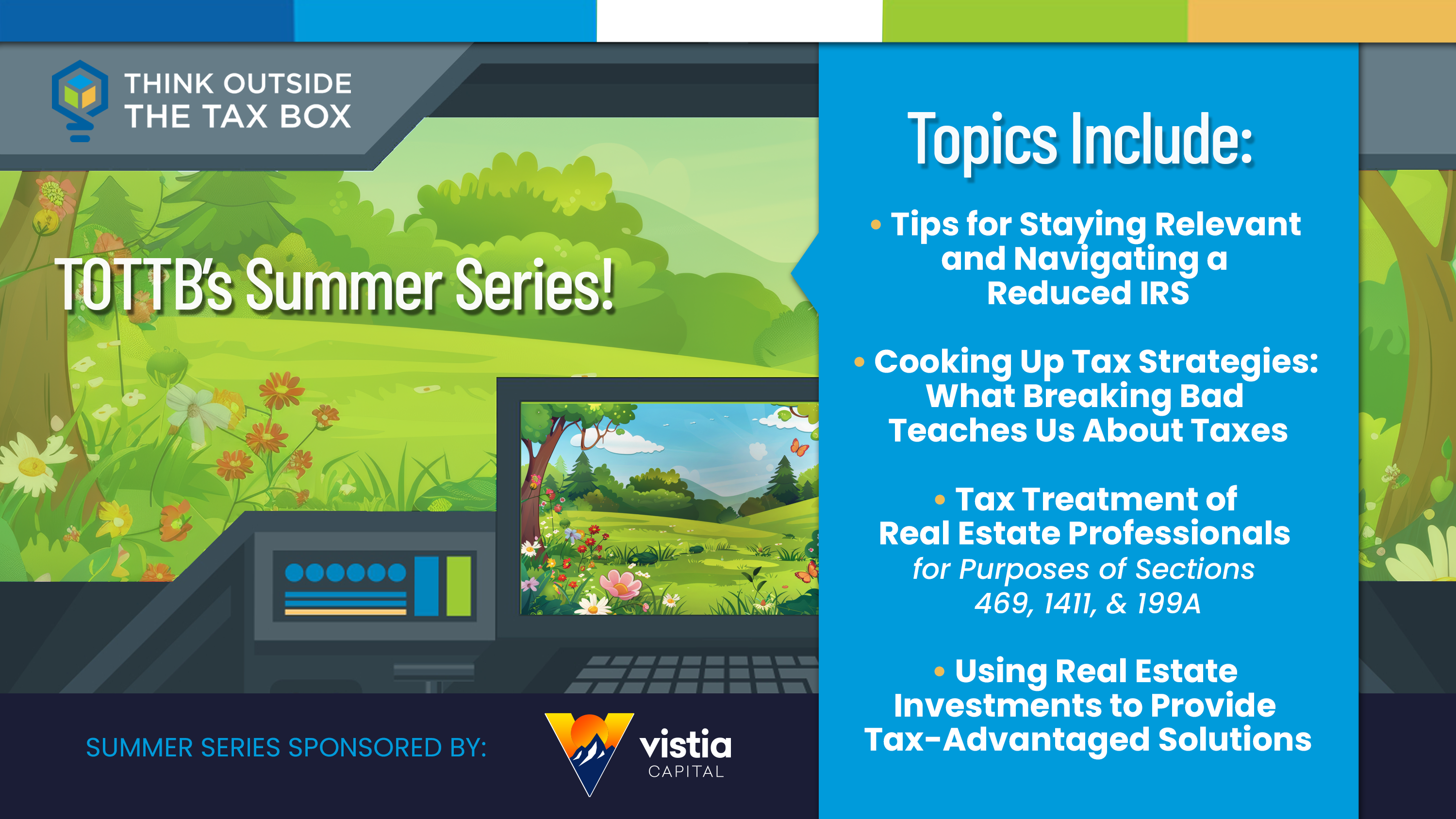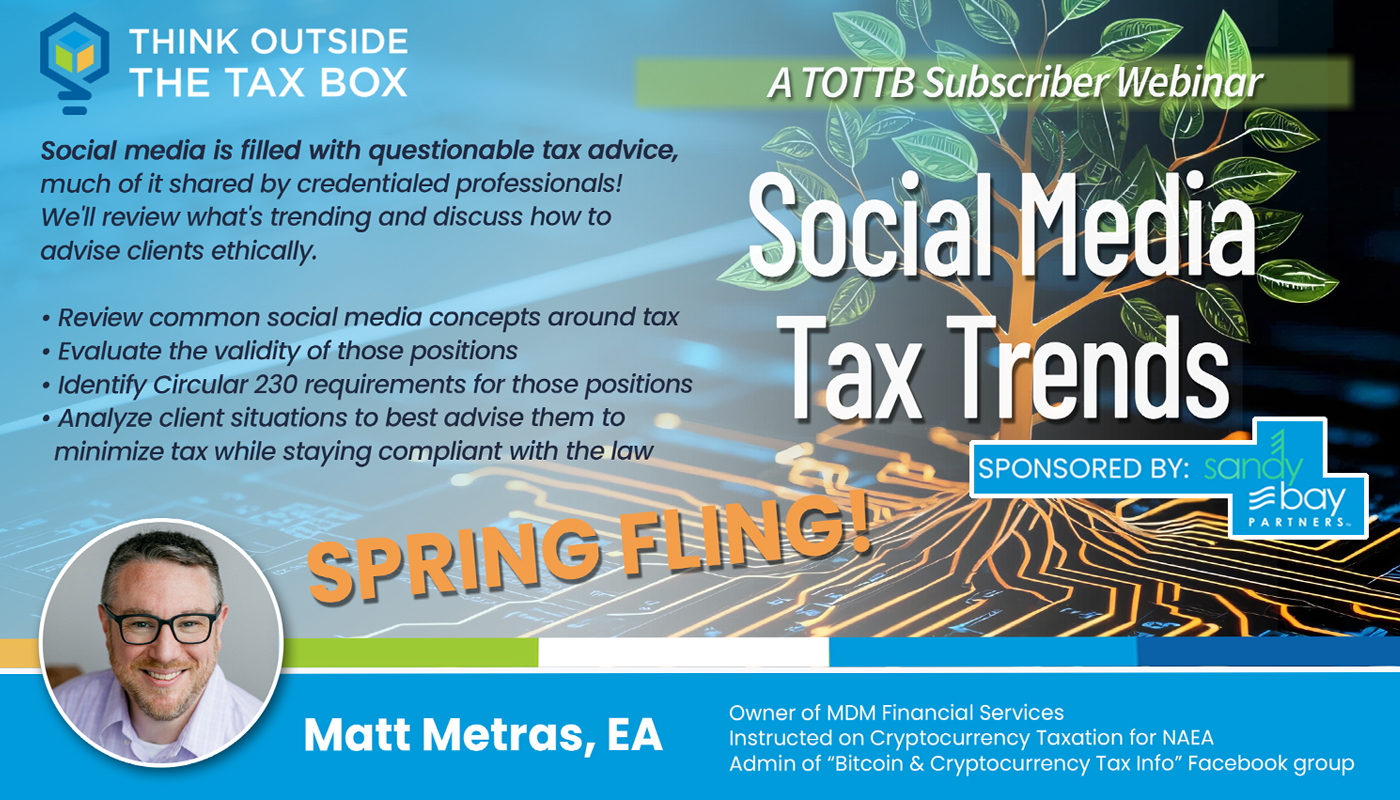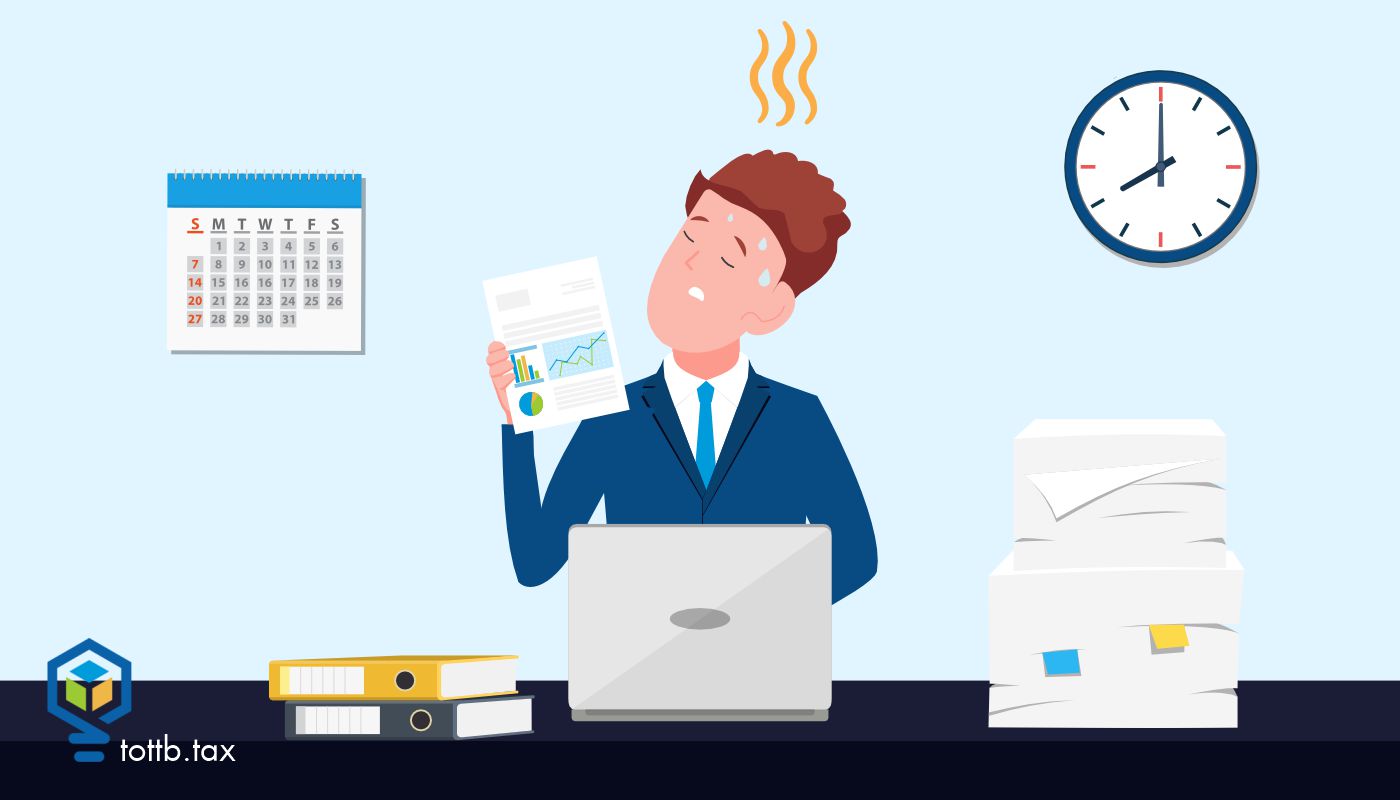CURRENT EDITION

This Is The Only Other Year-End Tax Tip Guide You Need
So as I did last year, I have reviewed a multitude of year-end tax tips articles. One of them is a real standout that you should be sure to check out. If you missed it, you should definitely roll back to the November 15 edition and go over Dominique Molina’s piece, which focuses on what you need to do sooner rather than later in response to OBBBA. It provides more detailed, relevant, actionable advice that you won’t see anywhere else than any of the multitude of pieces I have reviewed. As for the rest, I will give you a basic rundown of what I call the SOSO (same old, same old) and a few suggestions that stand out as different that I will get into a little more along with some thoughts of my own.
READ MORETAX COURT ROUNDUP – May 2025
Once again, Tax Court provides slices of life as well as hyper-technical drilldowns into convoluted legal conundrums. To any who say that tax law is dull, I refer them to the annals of 400 Second Street, NW, where anything goes.
Read More2025 Summer Education Series Event Calendar
We are thrilled to bring you the 2025 Summer Education Series, sponsored by Vistia! All summer long we will be bringing our loyal subscribers monthly webinars featuring some of the brightest minds in tax. Each webinar will feature our usual blend of high-quality education and entertainment and include continuing education credits for those who qualify. All of this is included in your regular subscription! Continue reading to see what we have in store...
Read More2025 Spring Fling Webinar Event
As we prepared our 4th Annual Summer Education Series, our friends at Sandy Bay challenged us to go bigger and do even more live events than we originally planned. So, we did! We are proud to present Think Outside the Tax Box's first ever “Spring Fling” live webinar event. As a monthly or annual subscriber, this webinar is 100% exclusive, and free to you! Every webinar comes with free continuing education credits for those who qualify! Keep reading for more details...
Read MoreJust How “Hot” Should IRC Section 751 Be?
Tax rules are generally designed with a purpose in mind. Most rules serve to define the tax base and tax rates. Many others serve a behavioral purpose to encourage or discourage certain activities. The focus of this article stems from tax rules that are a combination of favoring certain activity such as generation of capital gains, and a limitation on such gains for certain taxpayers, such as the so-called “hot assets” rule for partners under IRC Section 751, Unrealized Receivables and Inventory Items. While Section 751 has been in the tax law for decades, a new application of it was raised by both the IRS and California FTB. This article summarizes Rawat, TC Memo 2023-14, rev’d, No. 23-1142 (DC Cir., 2024), and FTB Legal Ruling 2022-02, and offers observations on their relevance to tax research and practice.
Read More1099 K(ickstarter): Crowdfunding and Taxes
Astronomical expenses crop up more than ever in our economy. From medical bills, business startups, a long-cherished artistic project, it feels like things are harder to afford now than ever. But the internet has also helped create a revolutionary way to raise large amounts of money for some of these causes: crowdfunding. But what does that mean for when the Tax Man comes calling?
Read MoreDave Ramsey And His Critics
Somehow I got through the last thirty years without ever hearing of Dave Ramsey. Now when I go on YouTube, which I do way too often, there is usually a Dave Ramsey video or a video by one of his critics in my feed, sometimes several. I have also looked at a few of his books. I was once told that because I am an Aquarian I want everybody to get along. So I am going to try to reconcile Ramsey’s recommendations and the significant criticism of them.
Read MoreEffective Sales Strategies for CPAs: Converting Prospects into Clients
As a Certified Public Accountant (CPA), you possess the technical knowledge and expertise to assist businesses and individuals with their financial needs. However, in today's competitive marketplace, more than possessing technical skills is needed to grow your client base. To succeed, CPAs must also master effective sales strategies to convert prospects into paying clients. In this article, I will explore critical techniques I had to learn to enhance my sales efforts and achieve my business goals, and I hope they help you reach yours!
Read MoreThe Ultimate Business Upgrade: Turning Your Partnership into an S Corp Without the Tax Bite
Looking to cut down on self-employment taxes on your partnership income? Converting your partnership into an S corporation might be the answer. If you currently run your business as a partnership or an LLC taxed as a partnership, you’re probably familiar with the sting of self-employment taxes. Unlike shareholder-employees of an S corporation, who only pay Social Security and Medicare taxes on their salaries, partners typically get hit with self-employment taxes on their entire share of the business’s net income. That can add up fast. By transitioning to an S corporation, you can restructure how you take your income—splitting it between salary and profit distributions. The big advantage? Those profit distributions are not subject to self-employment tax, potentially saving you thousands each year. So, if reducing your tax burden sounds appealing, let’s break down how a tax-free Section 351 incorporation works and what you need to know before making the move.
Read MoreNOT A MEMBER YET?

SUBSCRIBE TO GET ALL OF OUR
GREAT ARTICLES AND RESOURCES!
CURRENT EDITION

This Is The Only Other Year-End Tax Tip Guide You Need
So as I did last year, I have reviewed a multitude of year-end tax tips articles. One of them is a real standout that you should be sure to check out. If you missed it, you should definitely roll back to the November 15 edition and go over Dominique Molina’s piece, which focuses on what you need to do sooner rather than later in response to OBBBA. It provides more detailed, relevant, actionable advice that you won’t see anywhere else than any of the multitude of pieces I have reviewed. As for the rest, I will give you a basic rundown of what I call the SOSO (same old, same old) and a few suggestions that stand out as different that I will get into a little more along with some thoughts of my own.

The Corporate Vault: How to Use a C Corporation to Stockpile Cash for the Future
When most people think about saving for the future, their minds jump to retirement accounts—401(k)s, IRAs, maybe even defined benefit plans. But business owners have another option that often goes overlooked: using a C corporation as a strategic savings vehicle. By leveraging the flat 21% corporate tax rate, smart income shifting, and careful timing of distributions, business owners can “stockpile” cash inside a corporation, building wealth for future use without the red tape of traditional retirement plans. Want to see how top tax strategists legally use C corporations as private retirement vaults while avoiding double taxation and IRS scrutiny? Continue reading to learn the blueprint.

When TikTok Tax Hacks Backfire: Helping Clients Misled by Social Media Scams
Jessica, a self-employed consultant, was thrilled when she found a viral TikTok video promising a “little-known” tax trick. The video claimed she could get a huge refund by claiming a special Fuel Tax Credit and even writing off her family’s beach vacation as a business expense. Following the advice, Jessica filed an amended tax return and waited eagerly for a windfall. A few months later, instead of a refund check, Jessica received a stern IRS notice. Her so-called credits were disallowed, her refund was denied, and she now faced penalties. Jessica isn’t alone. Every tax season, well-intentioned taxpayers get lured by false tax advice on social media, only to end up in trouble. As tax professionals, we often meet panicked clients like Jessica who need our help to untangle the mess.









